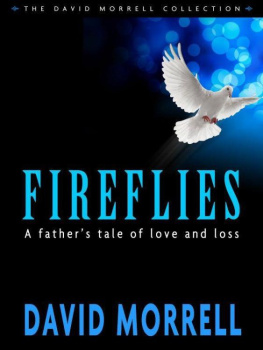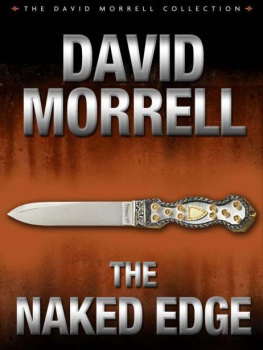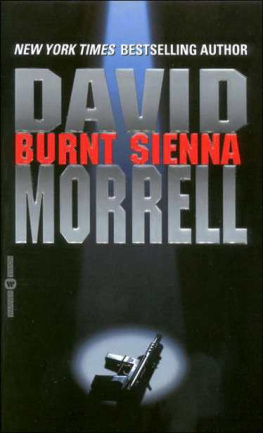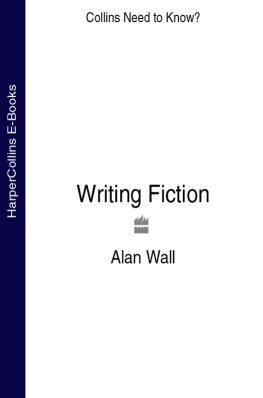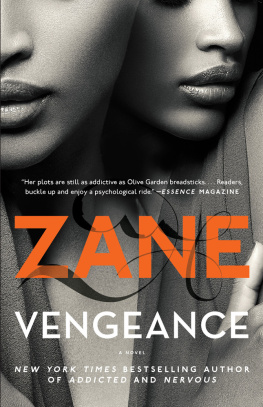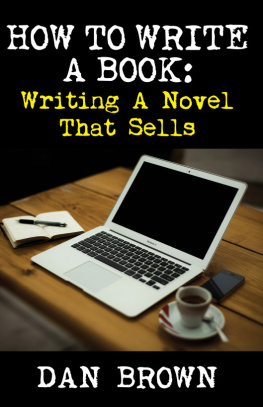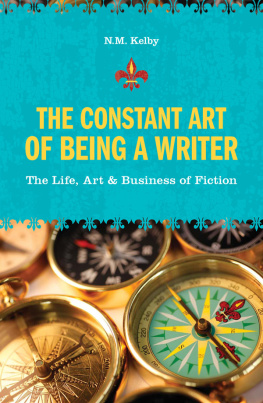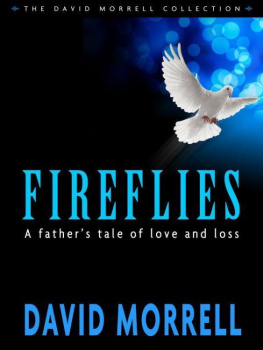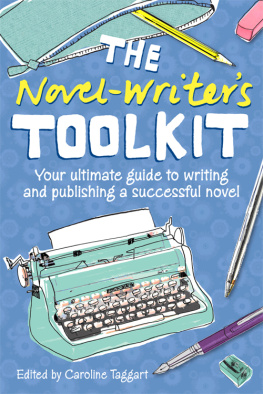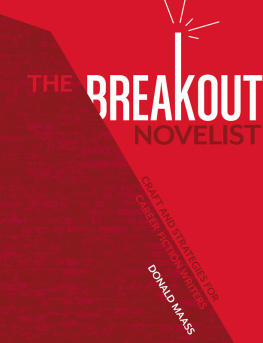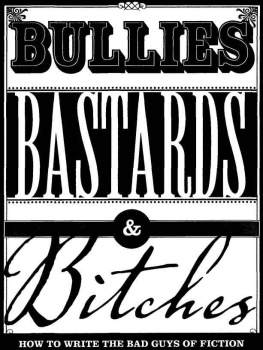The
Successful Novelist
The
Successful Novelist
A Lifetime of Lessons about Writing and Publishing
DAVID MORRELL
<*) Sourcebooks, Inc.*
W Naperville, Illinois
Copyright 2008 by David Morrell
Cover and internal design 2008 by Sourcebooks, Inc.
Cover photo Getty
Sourcebooks and the colophon are registered trademarks of Sourcebooks, Inc.
All rights reserved. No part of this book may be reproduced in any form or by any electronic or mechanical means including information storage and retrieval systemsexcept in the case of brief quotations embodied in critical articles or reviewswithout permission in writing from its publisher, Sourcebooks, Inc.
This publication is designed to provide accurate and authoritative information in regard to the subject matter covered. It is sold with the understanding that the publisher is not engaged in rendering legal, accounting, or other professional service. If legal advice or other expert assistance is required, the services of a competent professional person should be sought. From a Declaration of Principles Jointly Adopted by a Committee of the American Bar Association and a Committee of Publishers and Associations
All brand names and product names used in this book are trademarks, registered trademarks, or trade names of their respective holders. Sourcebooks, Inc., is not associated with any product or vendor in this book.
A version of lesson one, Why Do You Want To Be a Writer? was originally published as The Ferret Inside Me in Fiction Writer, October, 1999.
A version of lesson two, Getting Focused, was originally published as How Are You This Morning, David?A Better Way to Outlinein Fiction Writer,April, 1999.
A version of lesson seven,A Matter ofViewpoint,was originally published as First Blood,Third Person in Fiction Writer,April, 2000.
A version of lesson eleven,What Not to Do in Dialogue,was originally published as He Said? She Asked. Some Thoughts about Dialogue in Writing Horror, edited by Mort Castle, published by Writers Digest Books, 1997.
A portion of lesson fourteen,Rambo and the Movies,was originally published as The Man Who Created Ramboin Playboy,August, 1988.
The names section of lesson sixteen, Questions Im Often Asked, was originally published in Sherrilyn Kenyons The Writers Digest Character Naming Sourcebook, published by Writers Digest Books, 2005.
Published by Sourcebooks, Inc.
P.O.Box 4410, Naperville, Illinois 60567-4410 (630) 961-3900 Fax: (630) 961-2168 www.sourcebooks.com
Originally published in 2002 by Writers Digest Books.
Library of Congress Cataloging-in-Publication Data Morrell, David.
The successful novelist : a lifetime of lessons about writing and publishing / by David Morrell. p. cm.
ISBN 978-1-4022-1055-6 (trade pbk.)
1. Fiction--Authorship.2. Authorship.3. Authorship--Marketing. I.Title.
PN3365.M68 2008 808.3--dc22
2007027833
Printed and bound in the United States of America.
VP 10 9 8 7 6 5 4 3 2 1
Also by David Morrell
NOVELS First Blood (1972)
Testament (1975)
Last Reveille (1977)
The Totem (1979)
Blood Oath (1982)
The Brotherhood of the Rose (1984)
The Fraternity of the Stone (1985)
The League of Night and Fog (1987) The Fifth Profession (1990)
The Covenant of the Flame (1991) Assumed Identity (1993)
Desperate Measures (1994)
The Totem (Complete and Unaltered) (1994) Extreme Denial (1996)
Double Image (1998)
Burnt Sienna (2000)
Long Lost (2002)
The Protector (2003)
Creepers (2005)
Scavenger (2007)
NOVELIZATIONS
Rambo (First Blood Part II) (1985) Rambo III (1988)
SHORT FICTION
The Hundred-Year Christmas (1983) Black Evening (1999)
Nightscape (2004)
ILLUSTRATED FICTION Captain America:The End (2007)
NONFICTION
John Barth:An Introduction (1976)
Fireflies:A Fathers Tale of Love and Loss (1988) American Fiction,American Myth: Essays by Philip Young edited by David Morrell and Sandra Spanier (2000)
Dedication
^3
To Stirling Silliphant,
Philip Klass/William Tenn, and John Barth, the writers who, in chronological order, taught me most about fiction writing
Contents
^3
First Day of Class
^3
W hen I was seventeen, I realized that, more than anything, I wanted to be a fiction writer. I made the decision rather suddenly between 8:30 and 9:30 p.m. on the first Friday of October, 1960. How can I be so specific? Because that was when the classic TV series Route 66 premiered. I vividly remember the power with which the shows opening sequence struck metwo hip young men in a Corvette convertible driving along a highway while a piano jazz theme pulsed and the shows title zoomed into the foreground.
At the time, I was a troubled teenager who drowsed through my high school classes (except English) and then went home to watch television until the stations went off the air at 1 a.m. My schools principal once summoned me to his office, thrust a finger at me, and announced that Id never amount to anything. How ironic that a television program became my salvation. Route 66 was then the main highway connecting much of the United States, so its name made a perfect title for a show about two young men who traveled the country in search of America and themselves. Their search became my search. I identified with the characters. (One had recently lost his father; the other had been raised in an orphanage. When I was four, my mother put me in an orphanage because she couldnt support the two of us after my father had died in World War II.) I loved the colorful Beat way they talked. I hung on every twist in the plots. Eager to learn everything I could about Route 66 , I studied each episodes credits and noticed that almost every script was written by a man with the distinctive name Stirling Silliphant. The most bizarre notion took possession of me. Wouldnt it be great, I thought, to have made up all those gripping stories and to have invented that wonderful dialogue? Id always had an abundant imagination, filled with daydreams, but this was the first time it ever occurred to me that my imagination could be productive.
A directionless seventeen-year-old boy suddenly had a purpose that he could never have dreamt of a few weeks earlier. Noticing that Route 66 was produced by Screen Gems, a division of Columbia Pictures, I went to the local librarythis was in a modest-sized city called Kitchener in Ontario, Canadawhere I asked a librarian how I could find the address for Columbia Pictures. Armed with that address, I sent a handwritten letter (I didnt yet know how to type) to the mysterious Silliphant, informing him that he had inspired me to want to be a writer that basically I wanted to be him.
Whatever I expected, it certainly wasnt a reply within a week, in the form of a typed, two-page, single-spaced letter in which he apologized for taking so long to get back to me. (Hed been on a boat at sea when my letter arrived, he explained.) He was flattered that I admired his work. He was delighted that hed motivated me to try to do what he did. Unfortunately, he was far too busy to critique work by beginning writers. But he did offer some advice. If you want to be a writer, the secret is to write, write, write, and keep writing, he said. Eventually youll find other people who want to be writers.Youll trade ideas with them.Youll critique one anothers work. Keep writing. When you think you have something of merit, send it out. Chances are, the first items you submit wont be accepted, but you cant be discouraged. Keep writing. One day, if you have something of promise to say, somebody somewhere will see it and become excited and help you. Its just that simple, he concluded, and that terribly difficult.
Next page

